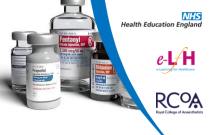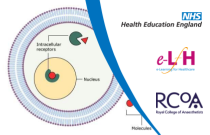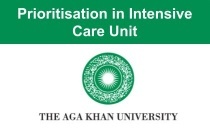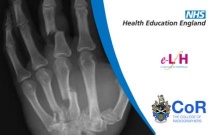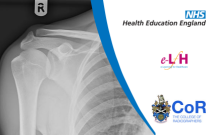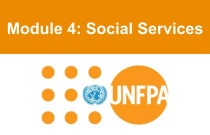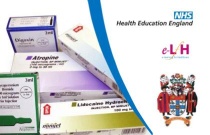Introduction to Mechanisms of Specific and Non-specific Drug Action
Michael McGinlay
This session examines some of the key mechanisms by which drugs exert their physiological effect on the human body. It outlines the basic principles that govern drug-receptor interaction with relevance to drugs that are used in everyday anaesthetic practice.
Nuclear Drug Receptors
Mahry Khalili
This session describes the function and structure of intracellular nuclear receptors, including steroid and thyroid hormone receptors.
Absorption and Bioavailability
Dr Damien Wood
This session is about the pharmacokinetic principles of drug absorption and bioavailability, and factors which can influence these properties such as the process of first-pass metabolism.
Prioritisation in Intensive Care Unit
Lilian Nuwabaine
This course is aimed to equip Nurses and Midwives with knowledge and skills about Prioritization.
COVID-19 Vaccine Handling
Prof. Tumbwene Mwansisya
This course intents to provide nurses and midwives on proper COVID-19 vaccine storage and protocols for transportation. This course focuses on equipping the learner with comprehensive knowledge and skills on storage and transportation of the COVID-19 vaccine. The course will be offered through online platforms as continuing educ....
Nutrition II: Nutrition in Infants and Young Children
The Hospital for Sick Children & ADRA Canada
Good nutrition and nutrition-related behaviours are critical for a child’s healthy growth, development and survival. Globally, approximately 45 percent of deaths among children under 5 are linked to undernutrition and 22.3 percent, or more than one in five children under age 5 worldwide has stunted growth. Across Kenya, mor....
Nutrition VI: Malnutrition Management
The Hospital for Sick Children & ADRA Canada
Good nutrition and nutrition-related behaviours are critical for a child’s healthy growth, development and survival. Globally, approximately 45 percent of deaths among children under 5 are linked to undernutrition and 22.3 percent, or more than one in five children under age 5 worldwide has stunted growth. Across Kenya, mor....
Anti-Diabetic Therapy: NIDDM and Insulin Therapy in Diabetes Mellitus
Grainne Nicholson
The session covers the main classes of drugs used to treat both non-insulin-dependent diabetes mellitus and insulin-dependent diabetes mellitus, as well as the use of insulin and the different formulations of insulin.
Frailty, End-of-life Care and Heart Failure
Dr Sarah Zaidi
This session describes how and why we need to identify those with HF, who have coexisting frailty, and those who may be entering their last year of life. It emphasises the importance of identifying frailty, plus those with emergent EOL prognostic indicators in the most timely way and the risks of not identifying them.
Transforming Heart Failure Care Across Your Primary Care Network
Raj Thakkar
This session discusses transforming heart failure care across your Primary Care Network (PCN).
Cardiovascular Disease Prevention and Rehabilitation
Sally Hinton and Dr Catriona Jennings
The session looks at cardiovascular prevention and rehabilitation. Although the topics discussed apply to both primary and secondary prevention, the main focus for this session is on secondary prevention.
Heart Valve Disease - Endocarditis
Dr Dominik Schlosshan
The session will focus on the diagnosis and management of endocarditis.
Image Interpretation - Adult Skeleton (X-ray): Hand - Session 3
Dorothy Keane
A self-assessment based on Image Interpretation - Adult Skeleton (X-ray): Hand - Sessions 1 and 2.
Image Interpretation - Adult Skeleton (X-ray): Shoulder - Session 3
Joanne Hargreaves
A self-assessment quiz based on Image Interpretation - Adult Skeleton (X-ray): Shoulder - Sessions 1 and 2.
Module 4: Social Services
Tania Farha and Riet Groenen, Luis Mora and Upala Devi, Ms Theresa Kilbane, Ms Clarice Da Silva e Paula and Mr Peter Gross
Module 4 covers standards and guidelines for the social services sector.
Introduction to AHPs in Neonatal Care
Charlotte Xanthidis, Lorraine Cairns, Emily Hills, Annie Aloysius
This session has been designed to be completed prior to undertaking the profession-specific allied health professional (AHP) sessions. It is suitable for any healthcare professional who will be working on a neonatal unit. It will guide you through a brief overview of the environment and specialist cohort of patients treated in t....
The Rise of Resistance: How Bacteria Outsmart Antibiotics
Dr. Caroline Maluleka
In this Antimicrobial (AMR) Community of Practice (CoP) webinar, we discuss the sophisticated and crafty methods bacteria use to resist antibiotics. The session presentation is delivered by Dr. Caroline Maluleka, Acting Head of the Centre for Heathcare-Associated Infections, Antimicrobial Resistance and Mycoses (CHARM), National....
Geospatial Analysis for Lab Efficiency & Network Optimization
Ms. Juhi Gautam and M. Thomas Crompton
On 25 July 2024, ASLM convened a LabCoP DNO SubCoP ECHO session to provide an introduction and overview of geospatial analyses for diagnostic systems strengthening. Geospatial analyses are increasingly being leveraged by countries to identify gaps and opportunities in expanding disease testing, promoting equitable access to test....
Sustainable Healthcare Waste Management
Janita Hoffman
LabCoP’s Waste Management ECHO session, held on 7 Dec 2023, focused on sustainable healthcare waste management. Having a comprehensive waste management system backed by competent policies/guidelines, competent staff, appropriate technologies chosen, deployed, and properly maintained is an obligation of every institution. Janita....
Classifications for Antiarrhythmic Drugs
Kirstin Wilkinson and Richard Cope
This session reviews the physiology of the cardiac action potential and describes the methods of arrhythmia generation. It also defines the classification methods available for arrhythmias along with the positive and negative attributes of each.
Drugs and the Sympathetic Nervous System
Rowan Hardy
This session discusses the mode and duration of action, metabolism, side-effects and the use in theatre of drugs that stimulate adrenergic receptors, including direct- and indirect-acting sympathomimetics.
The Autonomic Nervous System
Manpreet Singh and Jeffrey Handel
This session outlines the anatomical and physiological arrangements of the autonomic nervous system including receptors and transmitters involved with relevance to pharmacological agents.
Succinylcholine
Sue Hill
This session describes the properties of succinylcholine, the only depolarising muscle relaxant in clinical use in the UK.
Endogenous Catecholamines
Rowan Hardy
This session discusses the endogenous catecholamines: hormones and neurotransmitters, secreted by both the adrenal gland and sympathetic neurons.
Module 3: Diabetic Emergencies
Dr Trust Zaranyika, Dr Nickson Mukapa and Dr Moris Chiwanza
By the end of this module, participants will have comprehensive insights into the diagnosis, clinical features, investigations, and management strategies for Diabetic Ketoacidosis (DKA) and Hyperglycaemic Hyperosmolar State (HHS) with an emphasis on early recognition and intervention to improve patient outcomes.
